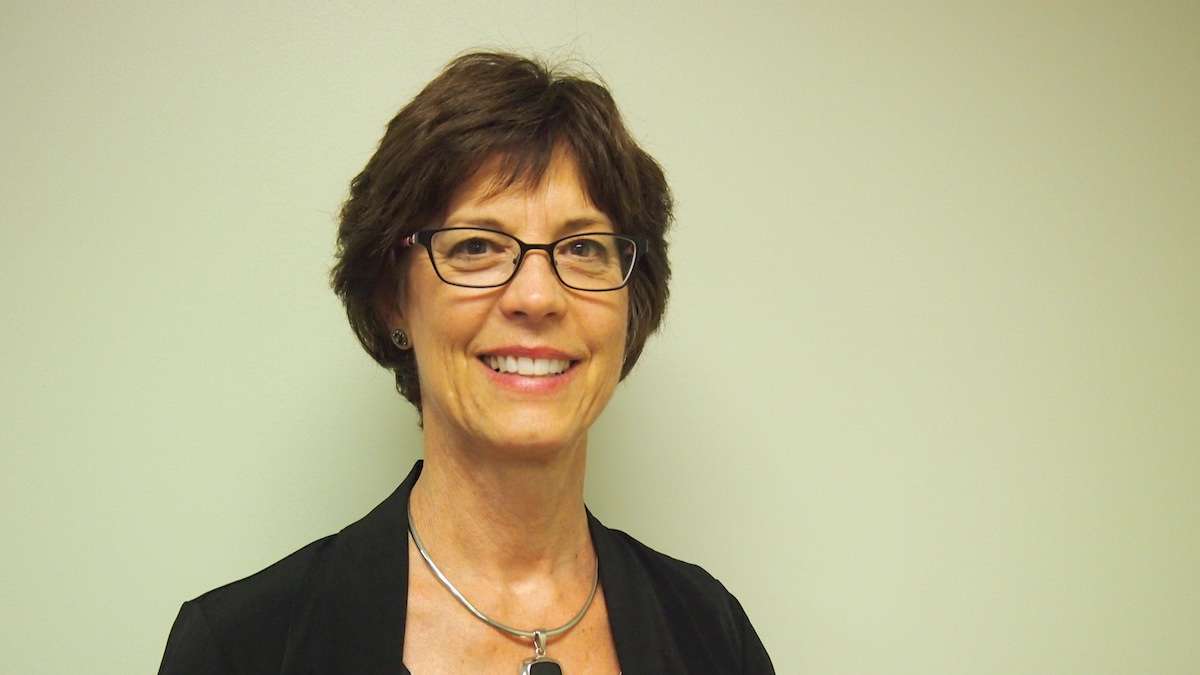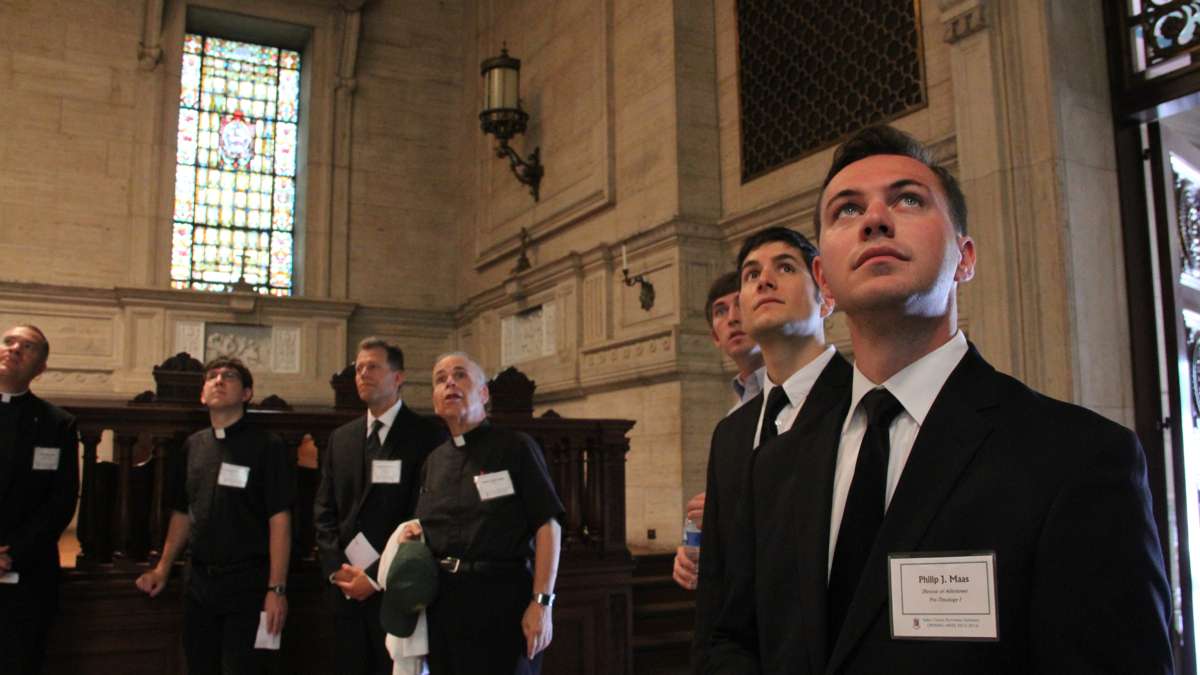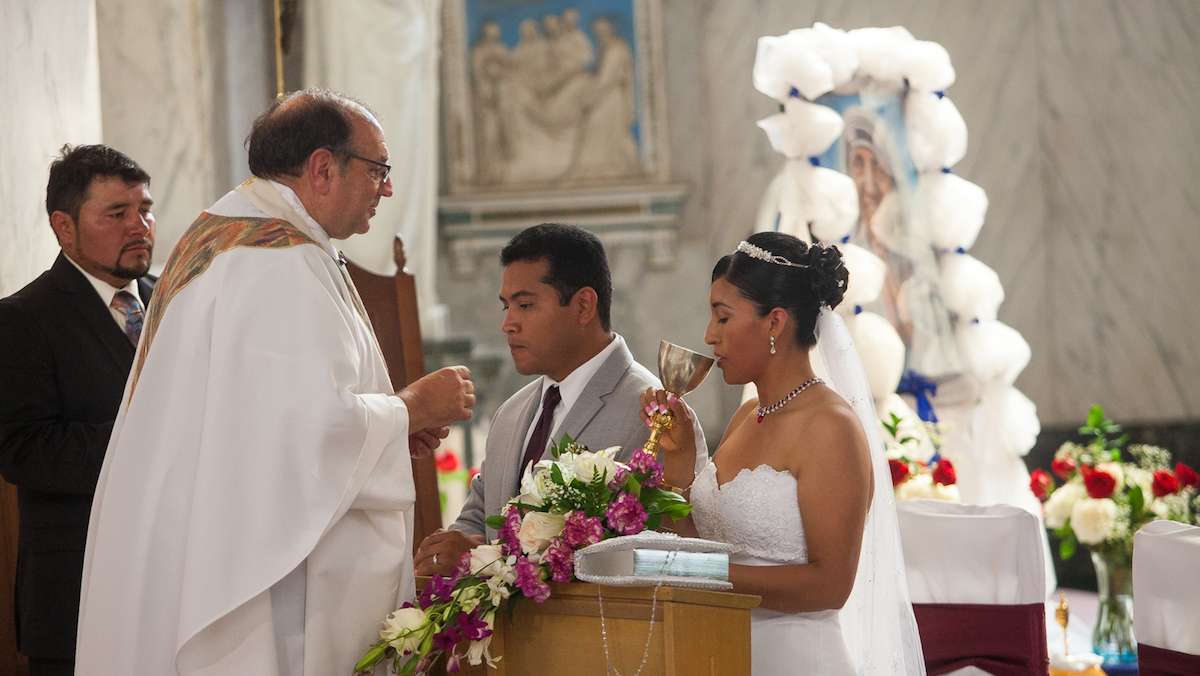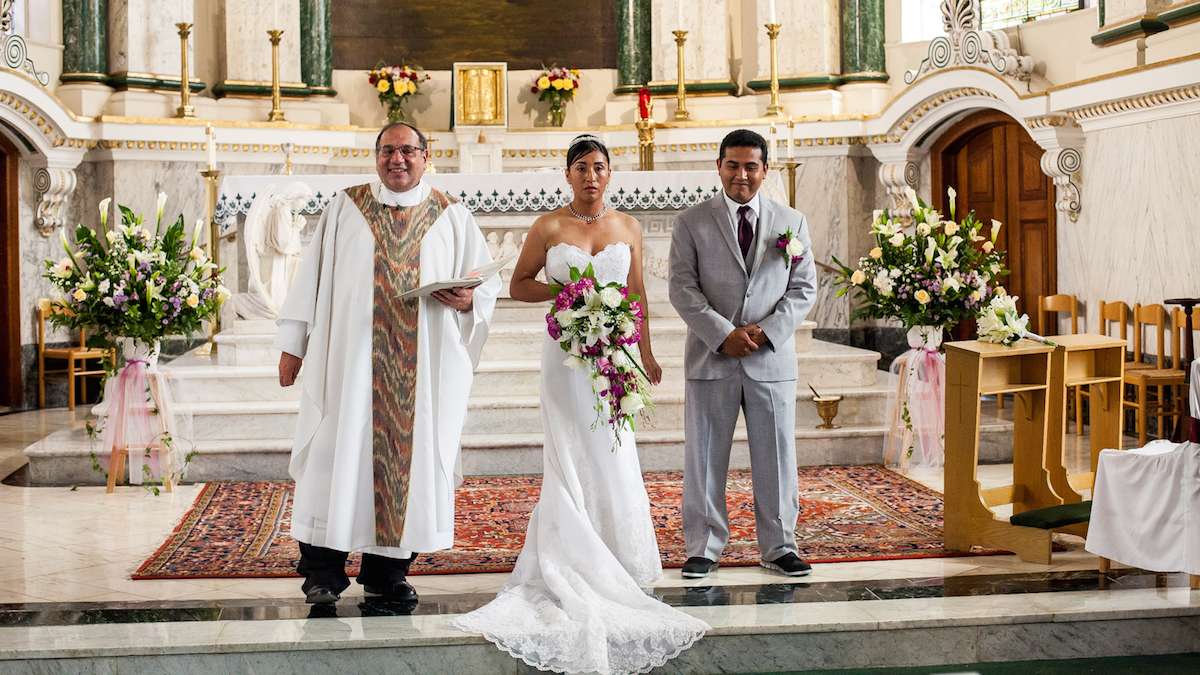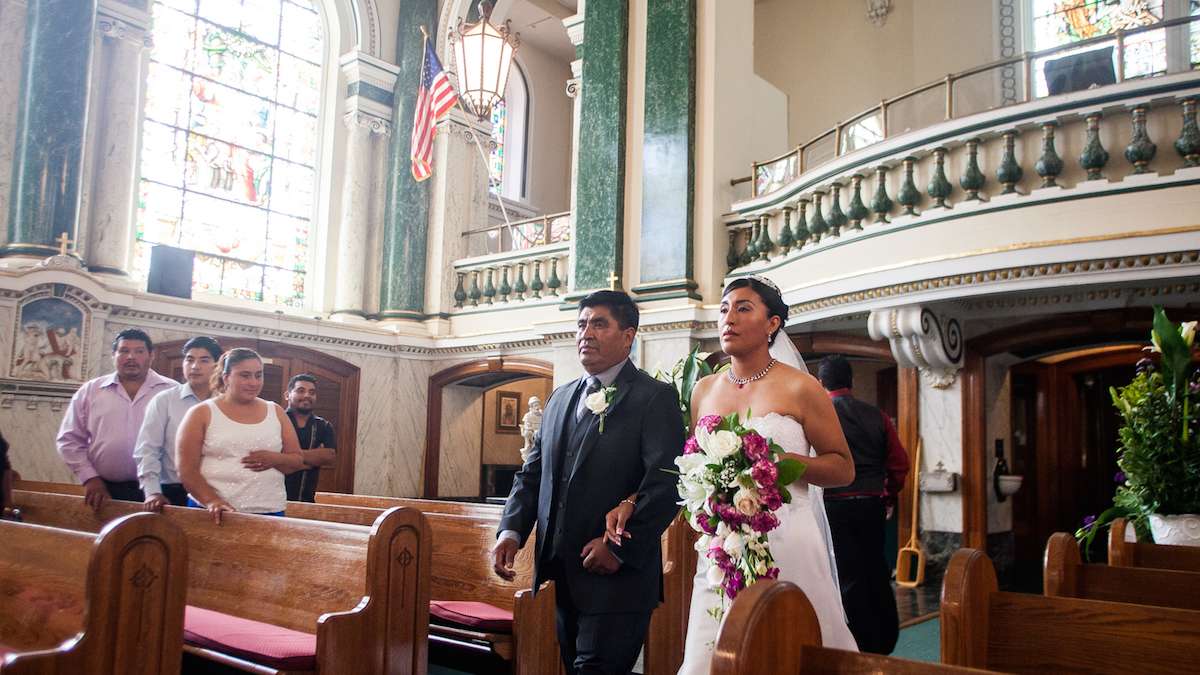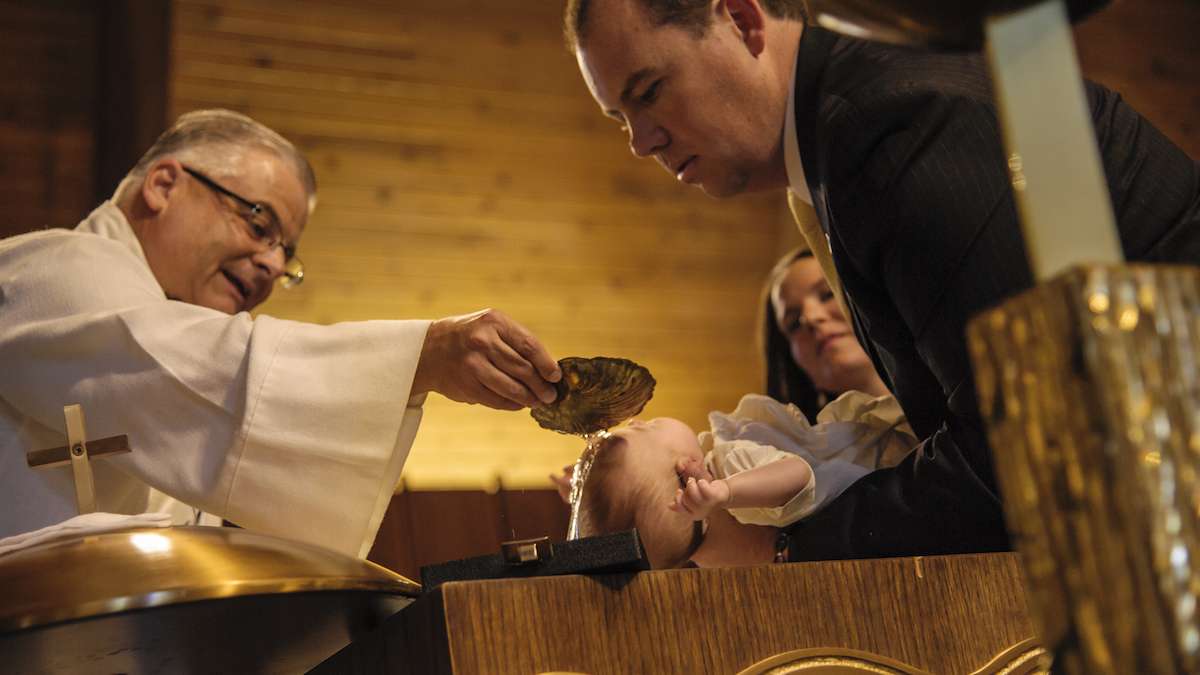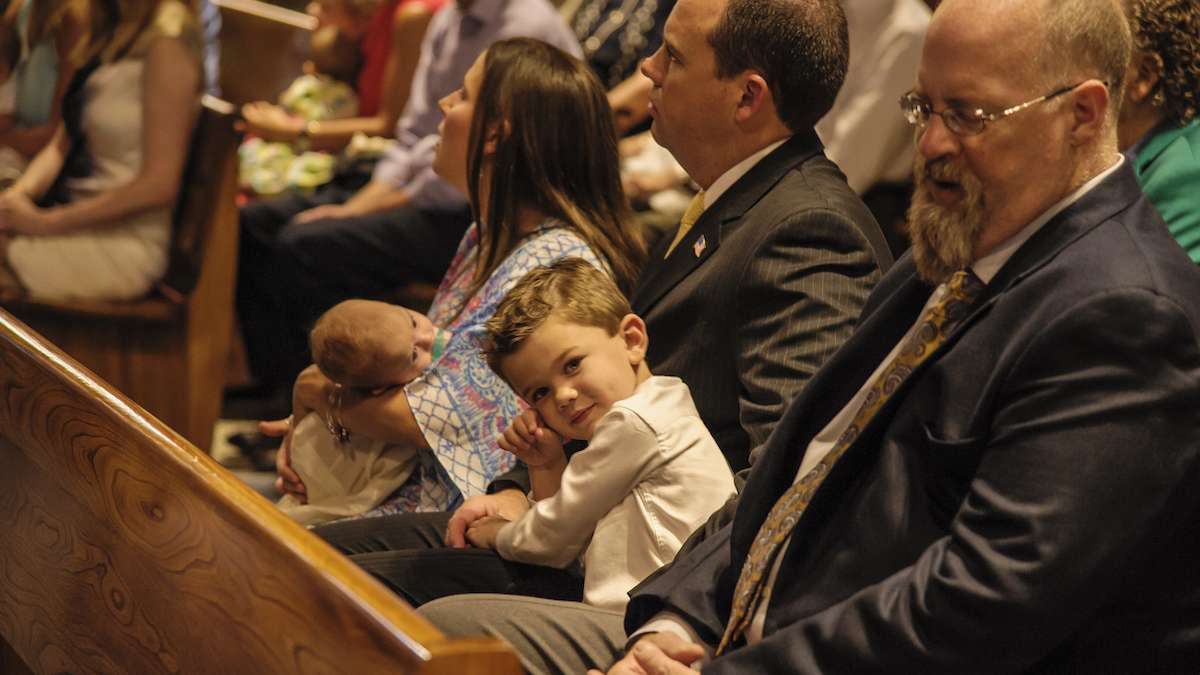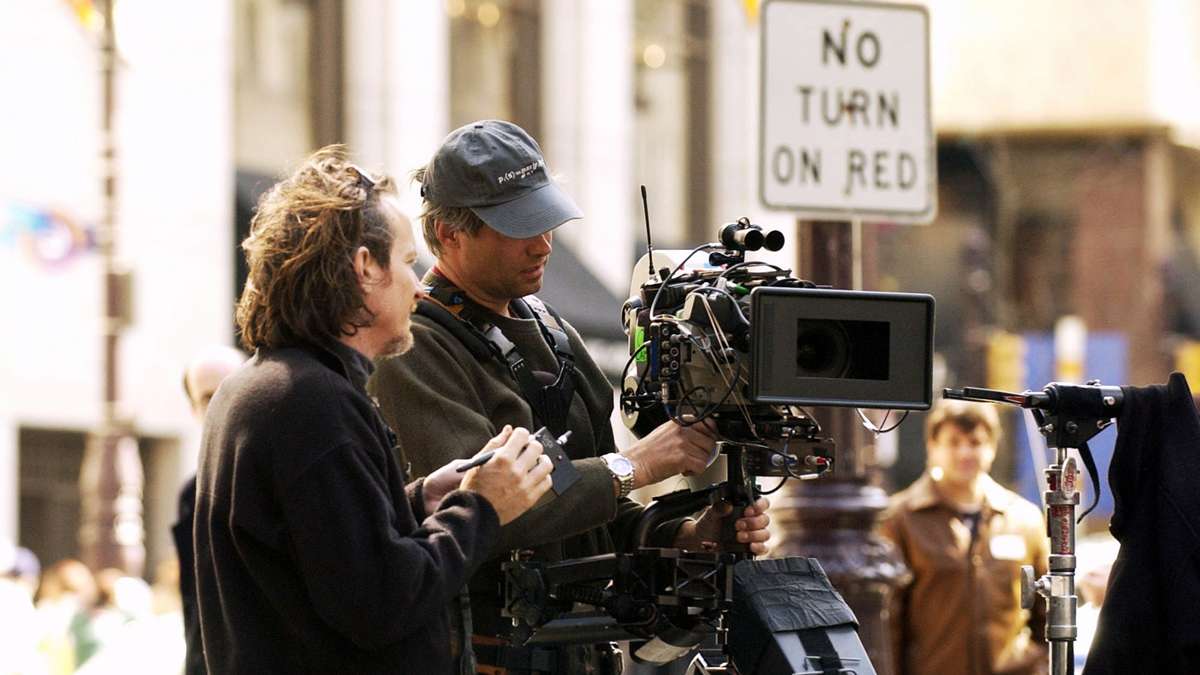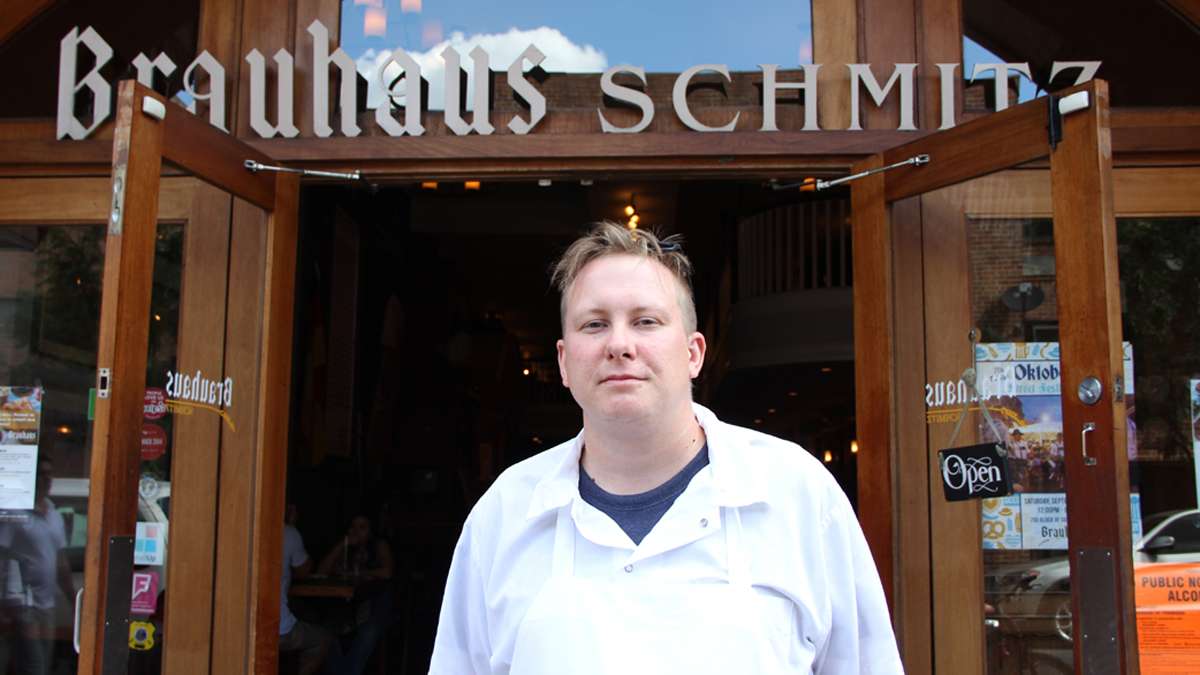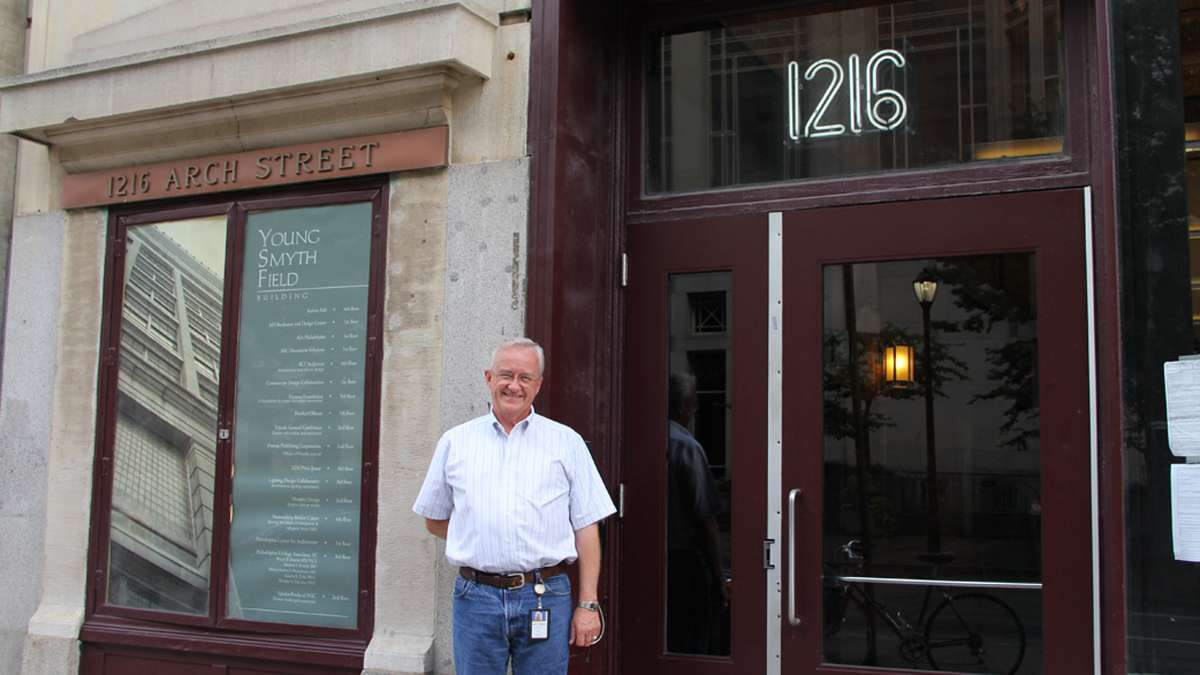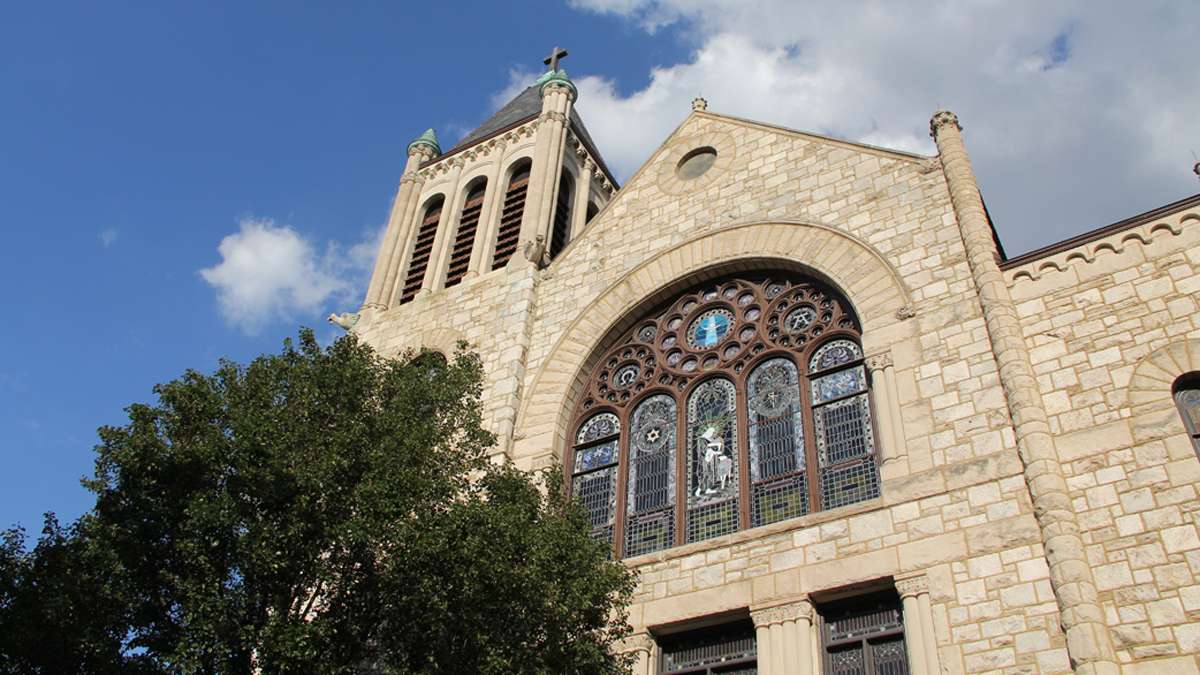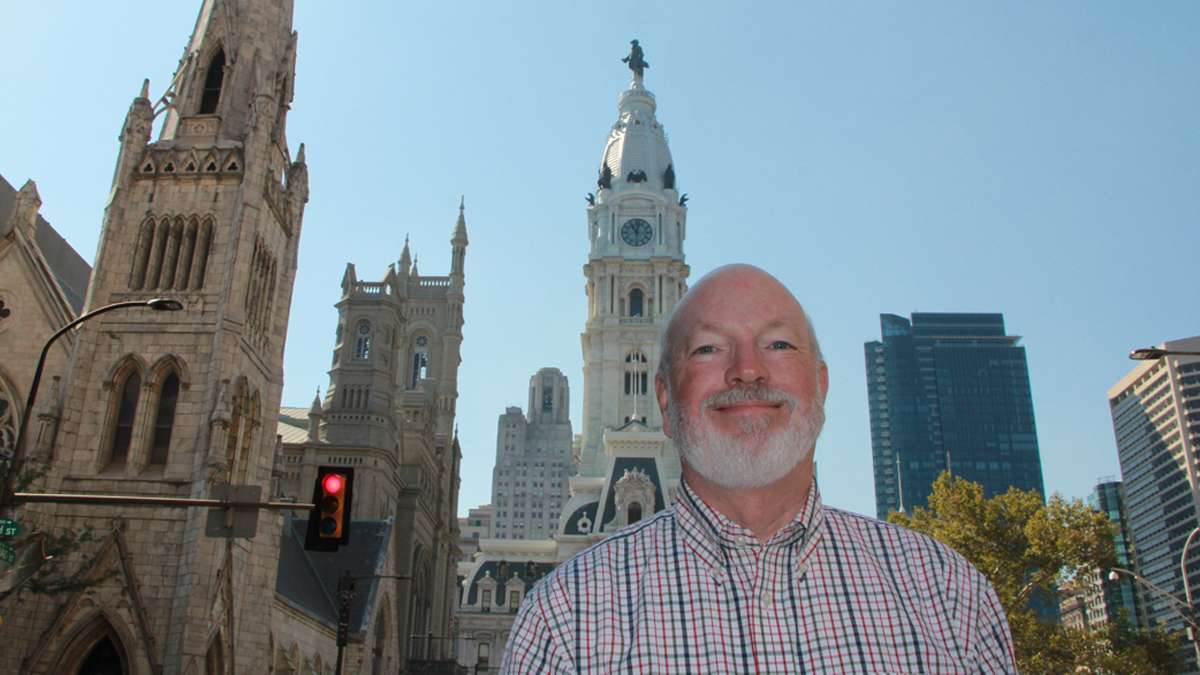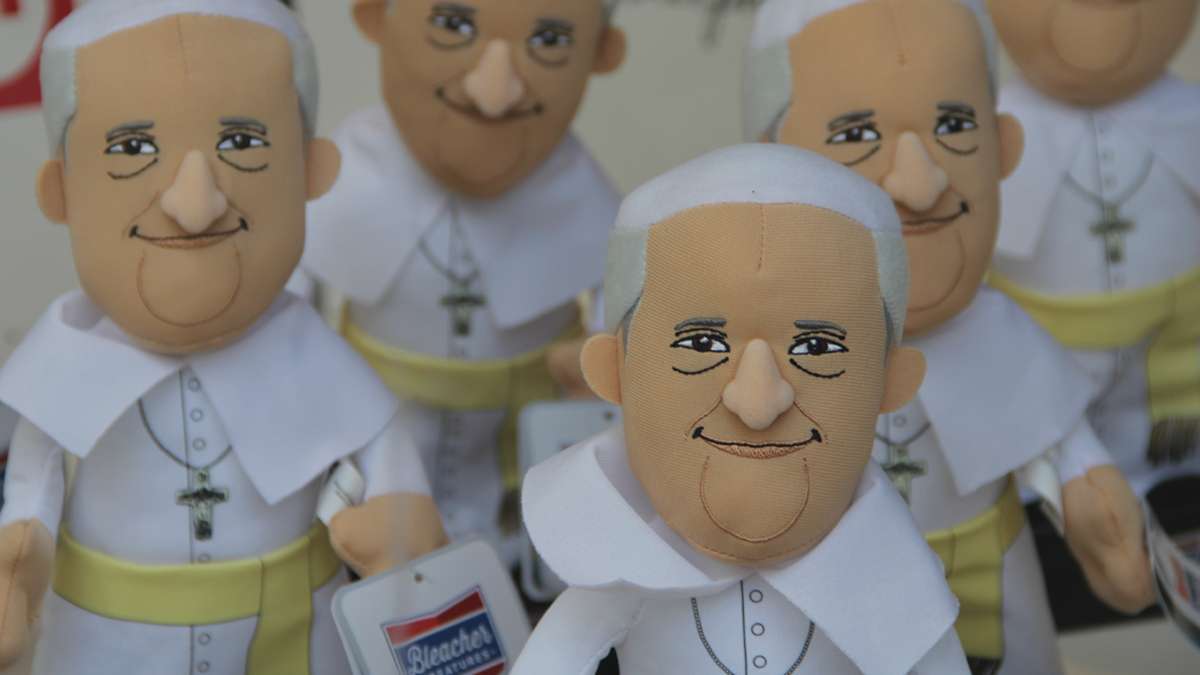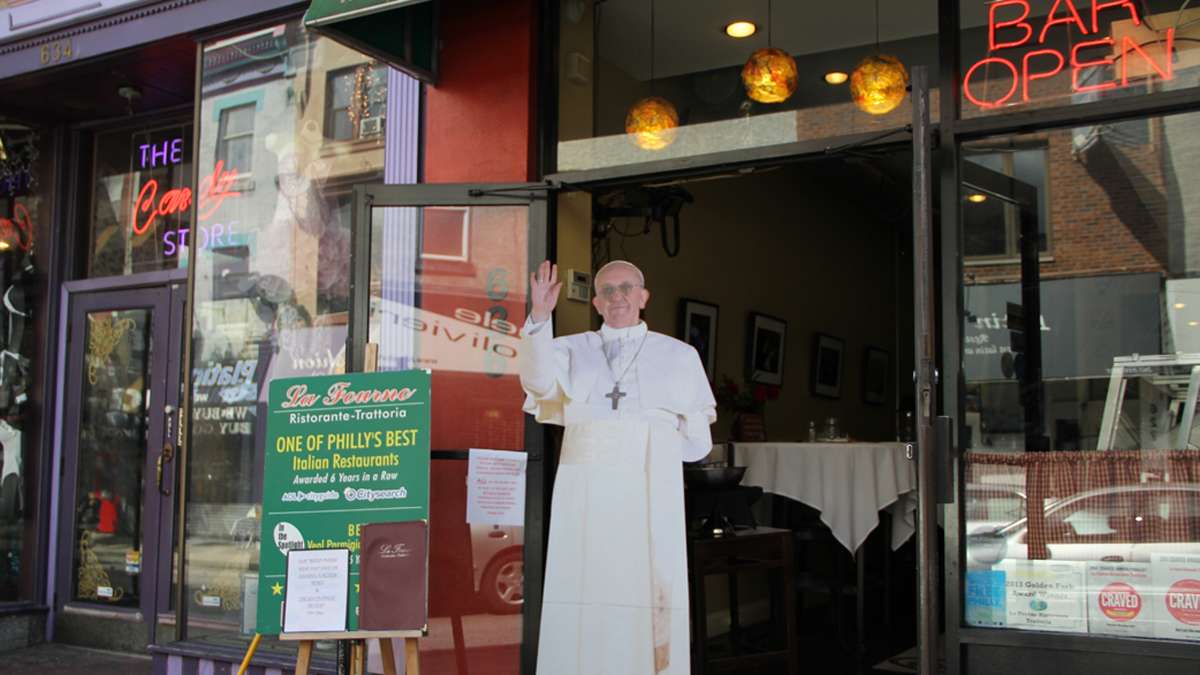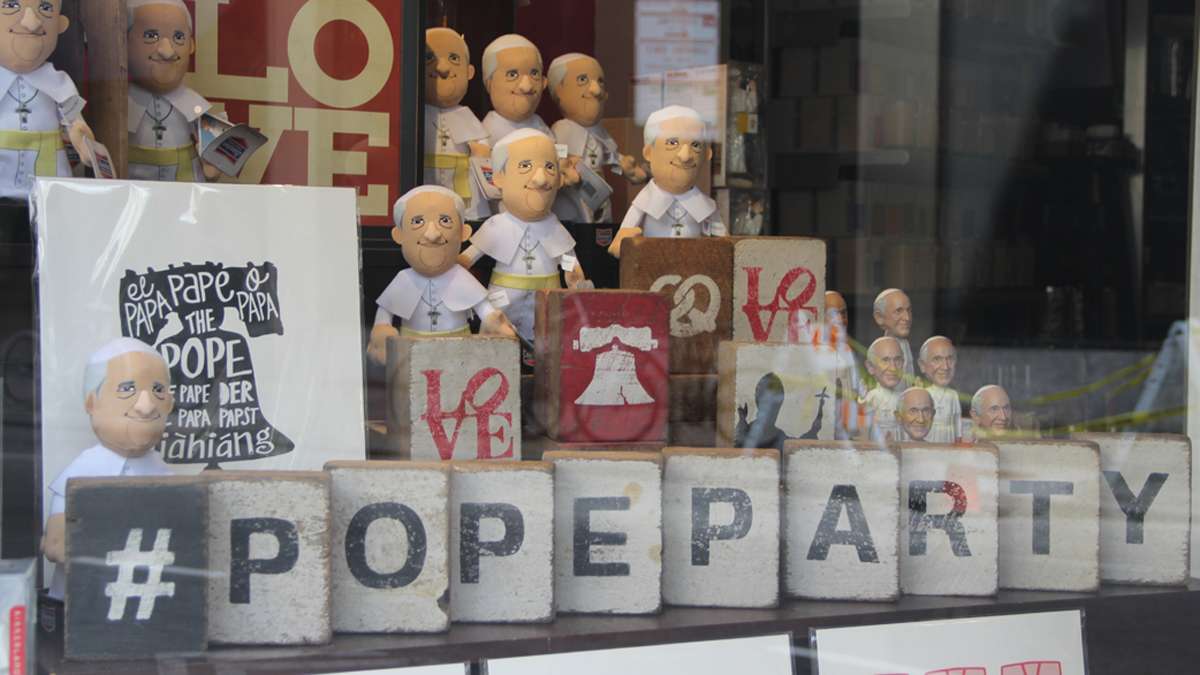Four Philadelphia movies the pope must watch before his visit
As the papal visit looms ever closer, one has to wonder how Pope Francis is preparing himself for Philadelphia. There are plenty of guidebooks, newspapers, and opportunities for social media sleuthing to be had. But before the Holy Father gets too deep into his research, I would like to lift up an alternative form of preparation for his consideration: movies.
As the papal visit looms ever closer, one has to wonder how Pope Francis is preparing himself for Philadelphia. After all, for a man who insists on having as direct a connection to the world as possible, from trading the privileges of a pope (a chauffeur-driven limousine, a luxurious residence) for the experience of a humble clergyman (a chauffeur-driven Ford Focus, an apartment in a hotelbehind a gas station near the Vatican), it’s fun to think of the pope conducting his own research of our fair city.
There are plenty of guidebooks, newspapers, and opportunities for social media sleuthing to be had. But before the Holy Father gets too deep into his research (see: hitchBOT, “they booed Santa Claus,” Philly Jesus), I would like to lift up an alternative form of preparation for his consideration: movies.
The City of Brotherly Love and Sisterly Affection has provided the backdrop for several top-notch film projects over the past 40 years. And it so happens that some of the most noteworthy productions feature themes that are closely aligned with the pope’s beliefs.
‘The Sixth Sense’ — Transformation through faith
Faith and spirituality are themes that native son-turned-director M. Night Shyamalan has explored regularly in his films, and “The Sixth Sense” remains his most effective reflection. Even the subject matter, ghosts and visions of the dead, is inherently Christian. In the film, troubled tween Cole (Haley Joel Osment) has the ability to see the dead, and it’s up to child psychologist Dr. Malcolm Crowe (Bruce Willis) to help him come to terms with his supernatural gift.
The city served as the perfect backdrop for scared, isolated Cole, who seeks refuge early on in the film inside St. Augustine’s Catholic Church near 4th and New Street. When Malcolm tells Cole that people used to “seek sanctuary” from “bad people” in churches, Cole builds his own sanctuary, complete with icons of Jesus and other saints, to protect him from the dearly departed who reveal their confused, decaying selves to him. He literally seeks solace in his faith.
Since its founding, Philadelphia has offered a sanctuary for individuals seeking a home to freely practice their faith. Brent Bill, author of several books on spirituality and the coordinator for the New Meetings Project for Friends General Conference in Center City, refers to the William Penn statue atop City Hall as “the Quaker Statue of Liberty,” a symbol of religious freedom welcoming everyone.
“Philadelphia attracted lots of different faiths [when it was founded] because it was one of the few colonies founded on religious freedom,” said Bill. “You didn’t have to be of any particular religious persuasion like the other colonies.”
Indeed, promoting religious liberty that definitely jibes with the pope’s views. At a June 2014 Rome conference called “International Religious Liberty and the Global Clash of Values,” Francis declared religious freedom a “fundamental right of the human person,” and “an indicator of a healthy democracy and one of the principal sources of a nation’s legitimacy.”
Even our city’s founder saw religious freedom as a precursor to a healthier, more connected community, according to Brent Bill.
“Penn once said ‘true Godliness doesn’t turn people out of the world, it prepares them to live better in the world,’ and I think that’s one of the strengths of a strong faith life. It gets you more involved in the world.”
‘In Her Shoes’ — A culinary call to action
You might have written it off as a chick flick, but “In Her Shoes” manages to successfully tackle several topics gracefully over the course of its 130-minute runtime. Suicide, family estrangement, learning disabilities, extramarital affairs, forgiveness — it’s an ambitious film that weaves together the lives of three women recovering from life’s unexpected setbacks. But it also manages to showcase the city’s diverse food scene, a culinary paradise that owes a lot to the collaboration between food makers and producers.
“We want everyone to have access to the best food, and that’s what sets Philly apart from other cities,” said Henrik Ringbom, sous chef at Brauhaus Schmidt. “The whole farm-to-table movement here is huge. Not only because it’s a trend, but because it’s the right thing to do.”
Our food scene’s culture of honoring the hard work of farmers and sharing high-quality ingredients with Philadelphians from all walks of life should be music to the pope’s ears. During an address he delivered in 2013 on UN World Environment Day, Francis criticized the “culture of waste” that has become so prevalent in our society and reminded audiences of a major responsibility handed down to humanity from God, the creator.
“Cultivating and caring for creation is God’s indication given to each one of us not only at the beginning of history,” the Pope explained. “It is part of His project; it means nurturing the world with responsibility and transforming it into a garden, a habitable place for everyone.”
The takeaway was clear: Embrace a culture of sustainability and solidarity. It’s a sentiment echoed in the community of chefs in the city.
“The food scene here is definitely smaller than the big cities, but the chefs here work together a lot,” said Ringbom. “A while ago, one of the chefs around here got a whole pig, and it was just too big for his restaurant. So he came out to other restaurants and just shared it. He made sure everyone got a piece of it.”
‘Philadelphia’ — Promoting compassion for the lives lost to AIDS
By the time “Philadelphia” arrived in theaters in December 1993, AIDS had claimed millions of lives worldwide, and people living with HIV were often criticized for bringing the disease on themselves through immoral behavior. That criticism began to fall apart thanks to Tom Hanks’ heartbreaking portrayal of a man who sues his former employer for discrimination after he is fired for being HIV-positive and gay.
An early scene of the film, where protagonist Andrew Beckett (Hanks) receives treatment, was filmed at the office of ActionAIDS, one of the longest-running nonprofits serving individuals and families affected by HIV/AIDS in the city. For Kevin Burns, the executive director of ActionAIDS, “Philadelphia” represented a major turning in the response to the AIDS epidemic.
“[The movie] gives tremendous insight into the struggles that people with HIV were living with at that time,” said Burns. “It gives a face to people living with HIV and AIDS, and it’s about a community that cares about one another. We are one of the leading cities that has exceptional primary medical care for people living with HIV and AIDS.”
Burns also pointed out that, in addition to its destigmatization of AIDS, “Philadelphia” also showcased a gay man’s close connection to his family, a cinematic representation that up until that time was largely unseen in mainstream movies with gay characters. Overnight, the film transformed gay characters from one-dimensional caricatures into human beings born out of loving families that cared for them until the end.
In an address Francis delivered on World Day of the Sick this past February, he discussed sapientia cordis (“wisdom of the heart”), and the idea that caring for the sick means showing compassion for patients regardless of their condition or how they became ill.
“Wisdom of the heart means showing solidarity with our brothers and sisters while not judging them,” he explained. “Charity takes time. Time to care for the sick and time to visit them.”
This compassionate, nonjudgemental approach has been preached by Francis before, most famously in his response to a reporter’s question in 2013 about the church’s stance on homosexuality: “If someone is gay and he searches for the Lord and has good will, who am I to judge?”
The city’s ongoing response to the AIDS epidemic is a perfect personification of the Pope’s interpretation of sapientia cordis, providing care without reservation. For Kevin Burns, “Philadelphia” and the work of AIDS organizations in the city is still very relevant.
“The movie is still reinforcing the legacy of Philadelphia being the City of Brotherly Love and Sisterly Affection,” he said. “Organizations like ActionAIDS, Bebashi, GALAEI, and ACT UP were very grassroots. We’re still fighting the fight. That’s who we are and what we’re about in the work that we do.”
You can’t keep the underdog down
There are many more must-see cinematic options for Pope Francis to consider as he prepares to visit the city, from light fare like “Trading Places” and “Mannequin” to eye-opening documentaries like “The Art of the Steal” and “Let the Fire Burn,” to the Eagles-glorifying “Silver Linings Playbook” and “Invincible.”
But of course, I can’t complete my offering without a mention of the film that, 40 years after it was made, continues to define us as a city for visitors. “Rocky” is a film that still resonates, because the hero, Rocky Balboa (played by struggling actor-turned-megastar Sylvester Stallone) was an underdog who defied expectation by going the distance.
Like Rocky Balboa, our city, and many of the institutions within it (see: our school system, our libraries, our culinary scene, our sports teams, our artists, our transit system, our newspapers), still manage to hold their own against a world that expects us to give up.
It’s particularly fitting for the pope to make our city the centerpiece of his American visit, because Pope Francis himself was once the underdog. At the 2013 papal conclave, gamblers bet 25 to 1 that Archbishop Jorge Bergoglio would be elected to succeed Pope Benedict XVI. Now, two years later, he will leave his mark on the City of Brotherly Love and Sisterly Affection, not too far from the stairs Rocky Balboa once ascended in triumph.
WHYY is your source for fact-based, in-depth journalism and information. As a nonprofit organization, we rely on financial support from readers like you. Please give today.


